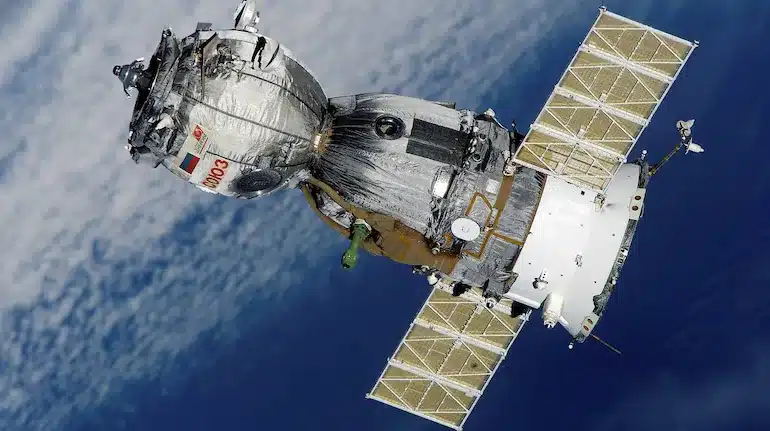DoT Establishes Guidelines for Satellite Communication Services Amid Starlink Developments

The Department of Telecom (DoT) has introduced stringent security regulations aimed at satellite communication services in India. These new norms require legal interception of satellite communications and prohibit companies from connecting user services to any facilities outside the country. Additionally, the rules mandate that at least 20 percent of the ground segment of satellite networks must be indigenized within a specified timeframe. This move is significant as the government prepares to open satellite communication services to the public, ensuring measures are in place to prevent misuse by criminal elements.
New Security Regulations for Satellite Communication
The Department of Telecom’s latest guidelines emphasize the importance of security in satellite communication services. As the government gears up to allow public access to these services, the regulations aim to safeguard against potential threats, particularly from terrorist activities. The rules require satellite communication service providers to obtain security clearances for specific gateway and hub locations within India. Furthermore, they must comply with monitoring and interception requirements to ensure that all communications can be tracked and regulated by law enforcement agencies.
The guidelines specify that monitoring and lawful interception systems must be integrated with centralized monitoring systems. This integration is crucial for maintaining oversight of satellite communications and ensuring compliance with national security protocols. Service providers are also required to demonstrate their system capabilities regarding security aspects to the Department of Telecom or its authorized representatives before commencing operations in India.
Geographical Restrictions and User Privacy
The new regulations impose strict geographical restrictions on satellite communication services. Providers must establish special monitoring zones within 50 kilometers of international borders, as well as along coastal borders and exclusive economic zones. This measure is designed to facilitate monitoring of user activities by various security agencies, including the intelligence bureau and armed forces.
Moreover, the rules dictate that sensitive user information, including the location of user terminals and satellite phones, must not be accessible or visible from abroad. Similar to traditional telecom operators, satellite communication providers are also required to block access to websites that are prohibited in India. This ensures that all services adhere to the country’s legal framework and maintain user privacy.
Compliance and Operational Requirements
To operate in India, satellite communication service providers must comply with several operational requirements. They are mandated to ensure that no user terminal can access the network from outside the designated geo-fenced coverage area or through gateways located outside India. Additionally, providers must submit an undertaking confirming that they will not copy or decrypt Indian telecom data outside the country.
The regulations also stipulate that real-time monitoring must be in place to guarantee that no user traffic originating from or destined for India is routed through any foreign gateways or points of presence. This requirement is critical for maintaining the integrity of Indian telecommunications and ensuring that all data remains within national borders.
Licensing and Future Developments
The government has already issued licenses to Eutelsat OneWeb and Jio Satellite Communications, while Starlink is still awaiting final approval. These companies will be able to launch their services once they receive allocations for radio wave frequencies. The new regulations are expected to receive government approval based on recommendations from the Telecom Regulatory Authority of India (TRAI).
As the satellite communication landscape evolves in India, these stringent security norms reflect the government’s commitment to ensuring that emerging technologies are utilized safely and responsibly. The implementation of these guidelines marks a significant step in the regulation of satellite communications, paving the way for a secure and efficient service for the general public.
Observer Voice is the one stop site for National, International news, Sports, Editor’s Choice, Art/culture contents, Quotes and much more. We also cover historical contents. Historical contents includes World History, Indian History, and what happened today. The website also covers Entertainment across the India and World.
Follow Us on Twitter, Instagram, Facebook, & LinkedIn

